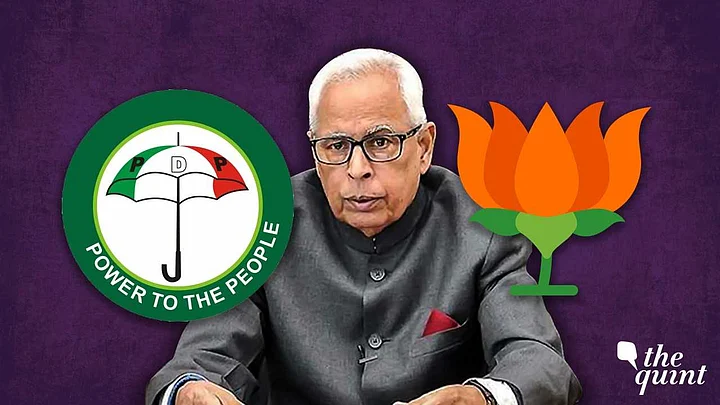The imposition of Governor’s rule in Jammu and Kashmir does not indicate a “hard-lined, muscular security approach”, said its Governor Narinder Nath Vohra, in an interview with Hindustan Times.
President Ram Nath Kovind approved the imposition of Governor’s rule in the state on 20 June, a day after the Bharatiya Janata Party (BJP) pulled out from its three-year alliance with People’s Democratic Party (PDP) in J&K.
“I am unaware of the genesis of the [talk on the] hard line approach. The entire administrative apparatus, from the very top to the bottom, shall function with efficiency, speed and accountability to serve the people and regain the trust of the common man,” he told the newspaper.
He added that the rule would, on the contrary, focus on better governance and greater development in the state.
On Governor’s Rule in a Divided State
Speaking to the Hindustan Times about the current tense environment in J&K, with the ongoing clashes between militants and security forces, he said:
There is a need to seek the involvement and support of various elements of civil society to engender a positive environment.J&K Governor Narinder Nath Vohra
In terms of imposing governor’s rule on a state which is divided, he added:
“Administrative functioning during the period of unitary rule is not anti-people. On the contrary, such spells are utilised to speed up the machinery and render prompt service, particularly to the neglected elements of society and those living in underdeveloped areas.”
On Discouraging Young Men From Joining Militant Groups
The report states that since the killing of Burhan Wani in 2016, there has been a rise in the number of young men choosing to join militant groups. Referring to this concern, the governor said:
Every possible effort shall be made to regain the confidence of the youth. We have already sought the support of political organisations and they have offered strong support.
He added that he would involve parents, teachers and civilians in general to reach out to these young, influential men, and talk to them about not taking up arms and trusting the government.
Vohra also touched upon the Ramzan ceasefire, in which operations against the militants were halted by India, at the start of the holy month. Standing by the government’s decision to call for this halt, he told the newspaper:
“The suspension of anti-terror operations was a gesture harmonising with the traditional spirit of piety and harmony relating to the holy month of Ramzan.”
(At The Quint, we question everything. Play an active role in shaping our journalism by becoming a member today.)
